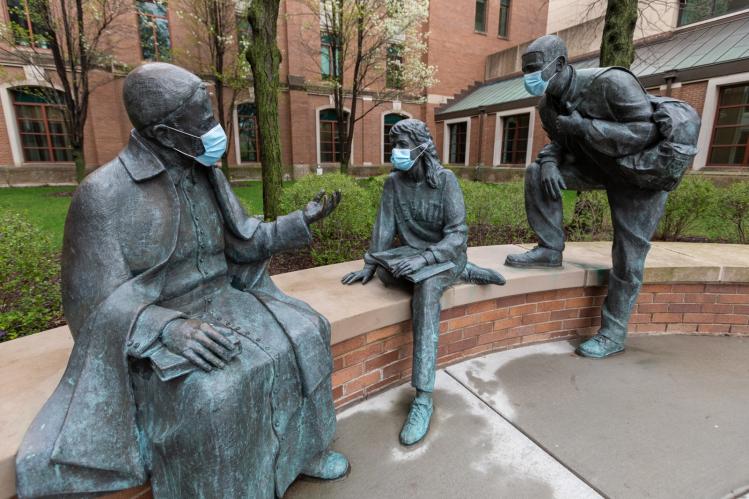
Last month, after Cambridge University announced that all its student lectures would be online until 2021 because of the coronavirus pandemic, Silicon Valley–based entrepreneur Balaji S. Srinivasan wondered whether the decision might set off a major disruption in higher education. “It’s interesting that removing the in-person experience destroys the pricing power of colleges”—except that of the relatively few colleges and universities, like Cambridge, whose “brand” can survive the disruption.
Srinivasan speculated further: “You’d think [colleges and universities] were selling education or (more cynically) a credential. But they were actually in the experience business.” The extensive luxuries of the modern campus—presumably the “experience” Srinivasan is referring to—are not essential to the university’s educational mission. But is that all there is to the experience of college? Can all higher learning happen on Zoom?
Silicon Valley doubts about the value of in-person education did not begin with this pandemic. Ten years ago, online prophets predicted that the rise of MOOCs (Massive Online Open Courses) would revolutionize higher education. Others advanced the idea that in-person learning is less efficient than learning via computer. In a 2008 interview, Elon Musk defined learning as follows: “You’re basically downloading data and algorithms into your brain.” Education, Musk suggested, would be better if it were more like a computer game.
Now is a crucial moment to defend in-person learning—going to a classroom, sitting at a desk, listening to a lecture, raising your hand to make a comment or ask a question, listening and responding to your fellow students, persuading them, being persuaded. This is generally the best method of learning, at any level of schooling, a method worthy of us as human beings.
Consider Musk’s use of the computer as a metaphor for the human mind. Both can be programmed. A computer is programmed through a straightforward process that requires minimal interaction between no more than two parties—the programmer and the programmed. But is this really how human beings learn, as mere receptacles for information?
Another Silicon Valley luminary, Jaron Lanier, takes a view very different from Musk’s. In You Are Not a Gadget, Lanier expresses his fear of a world in which human minds and computers become ever more like each other—and not because computers have advanced to the point of being as intelligent as humans. Instead, Lanier fears a future where “you can’t tell if a machine has gotten smarter or if you’ve lowered your standards of intelligence to such a degree that the machine seems smart.”
If Lanier is right, then Musk’s model of education as “downloading” might work—but only by diminishing the scope of human intelligence. Musk’s metaphor reduces education to learning rote tasks, processing data, and technical problem-solving. It does not encompass the nuances of humanistic learning, much of which happens through innumerable small gestures, indirect suggestions, arguments, and moments of thoughtful silence. Musk’s model of education may describe how we learn to design a rocket ship, but not how we learn to discuss our motivation for doing so, or whether it is worth the huge expense. (Wernher von Braun, head of the Apollo program, once said that NASA needs philosophers as well as engineers. So does Musk’s SpaceX.)
Despite its promise of interactivity, schooling via Zoom is closer to the downloading model of learning than the flesh-and-blood community of students and teachers that it threatens to replace. That community needs places where we can be wholly present to one another: classrooms, lecture halls, campuses. A screen can only simulate the presence of a community. It can complement the classroom but never replace it.